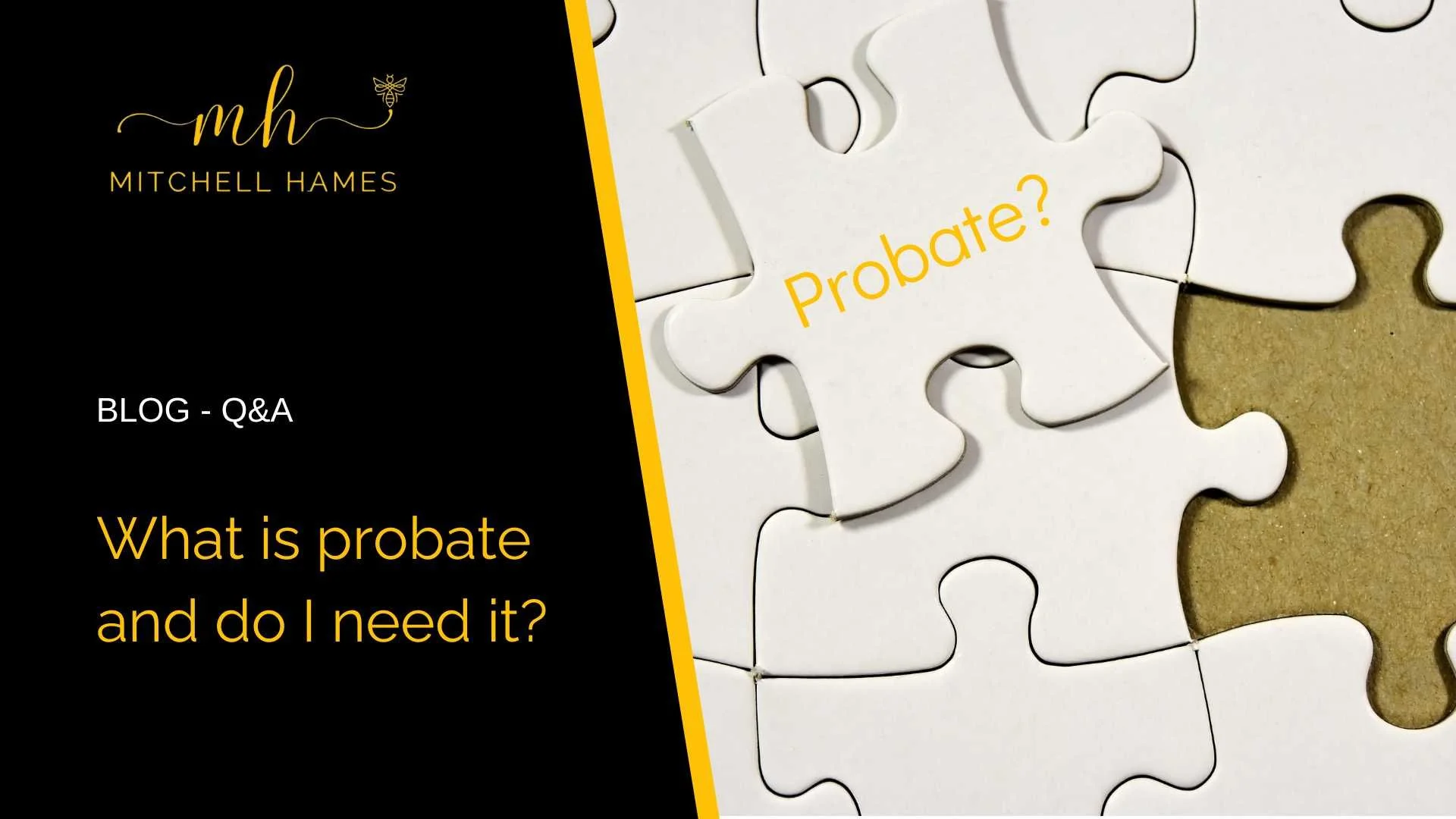What is probate?
You may have heard the term ‘probate’ to describe dealing with the financial matters of a loved one, but you may not have heard of the phrase: letters of administration. They’re both terms related to dealing with a deceased person's estate, but they have different meanings, and there are important distinctions between them.
Probate
In England, when someone dies with a valid will, the process of handling their estate is dealt with by obtaining a grant of probate. The named executor(s) in the will must apply for probate, which gives them legal authority to gather assets, pay off any debts or taxes, and distribute the estate according to the wishes expressed in the will. The probate process ensures that the estate is properly accounted for and that beneficiaries receive what they are legally entitled to. While having a will generally makes the process smoother and clearer, executors still have legal responsibilities and can be held liable if mistakes are made during administration.
Letters of Administration
If a person dies without a valid will, they are said to have died intestate, and the process is slightly different. Instead of applying for probate, a family member (usually the closest living relative) must apply for letters of administration. The person granted this legal authority becomes the administrator of the estate. Because there’s no will to follow, the estate must be divided according to the rules of intestacy, a fixed legal hierarchy that dictates who inherits. These rules can sometimes lead to unintended consequences—such as excluding long-term partners, stepchildren, or friends—and can complicate an already stressful time.
The term 'Probate' is often mistaken to mean all of the tasks to be completed following a bereavement, but it’s simply the term for obtaining the Grant that enables you to carry out these tasks.
Probate is only one part of the wider estate administration process. Probate provides you with the legal right to carry out the estate administration, including dealing with property, money and personal possessions.
How much does a grant of probate cost?
Probate fees increased in January 2022 to a single flat rate of £273 for all applicants. The new flat fee replaced both the fee for individuals applying for probate themselves (previously £215) and the reduced fee payable by probate professionals (£155).
The previous tiered arrangement aimed to encourage the use of professionals to carry out the often complex process of obtaining a Grant of Probate or Grant of Letters of Administration and winding up a deceased’s estate. The higher charge for individuals reflected the more significant amount of work required by the Probate Registry in dealing with mistakes or incorrect applications.
Probate and other court fees in July 2025
In 2024, the standard probate fee was raised by £27 to £300. Probate fees are only payable for estates with a value above £5,000 and are paid from the estate once probate has been granted.
Extra copies of the probate document are £1.50 each. This allows you to send them to different organisations at the same time.
If probate has already been granted, it costs £21 to make a second application. For example, if you want to apply as an executor after holding ‘power reserved’ on the first application. You’ll have to pay the fee even if the value of the estate is £5,000 or less.
How do I apply for a grant of probate?
Probate applications and estate administration can be complex and time-consuming. Some aspects of the work, such as calculating Inheritance Tax and preparing estate accounts, are particularly difficult. Penalties can be imposed for underpayment of tax, and beneficiaries can bring a claim if the estate is not correctly administered and recorded.
For this reason, it is often advisable for clients to speak to a probate professional to ensure no inadvertent errors are made.
To apply for a grant of probate personally, consult the GOV.UK website for guidance. If you rely on a book about estate administration to help you, take care to choose one that is recently published and deals with the legal system in your jurisdiction. The law and process for dealing with an estate administration in England and Wales are different from those in Scotland.
The grant of probate fee paid to the Probate Court does not include any technical or administrative work done by a legal or financial professional. TAKE CARE: Anyone can call themselves a probate specialist, but only certain professionals can charge for obtaining a grant of probate, as this is what is termed a ‘reserved activity’. Non-solicitor firms must subcontract any ‘reserved’ work to a solicitor. Always check the credentials of the person or firm you engage to carry out this work for you.
If you would like assistance with applying for a grant or want to step away and appoint a professional to administer the estate for you, please feel free to get in touch. My trusted probate colleagues will take care of everything for you. I know you’ll find them efficient and friendly.
Pre-paid probate - AVOID
I actively discourage clients from paying for the cost of their own estate administration and probate in advance.
“Pre-paid probate services are unregulated and, in my experience, are offered by commission-hungry salespeople. These companies take clients’ money and promise to deal with the estate at some future date, but with no guarantee or safeguard that they will still be in business. Funds are at risk without the protection of the UK’s financial services regulator. I strongly discourage these plans, and no firm I’ve ever been involved with has ever offered pre-paid probate.”



